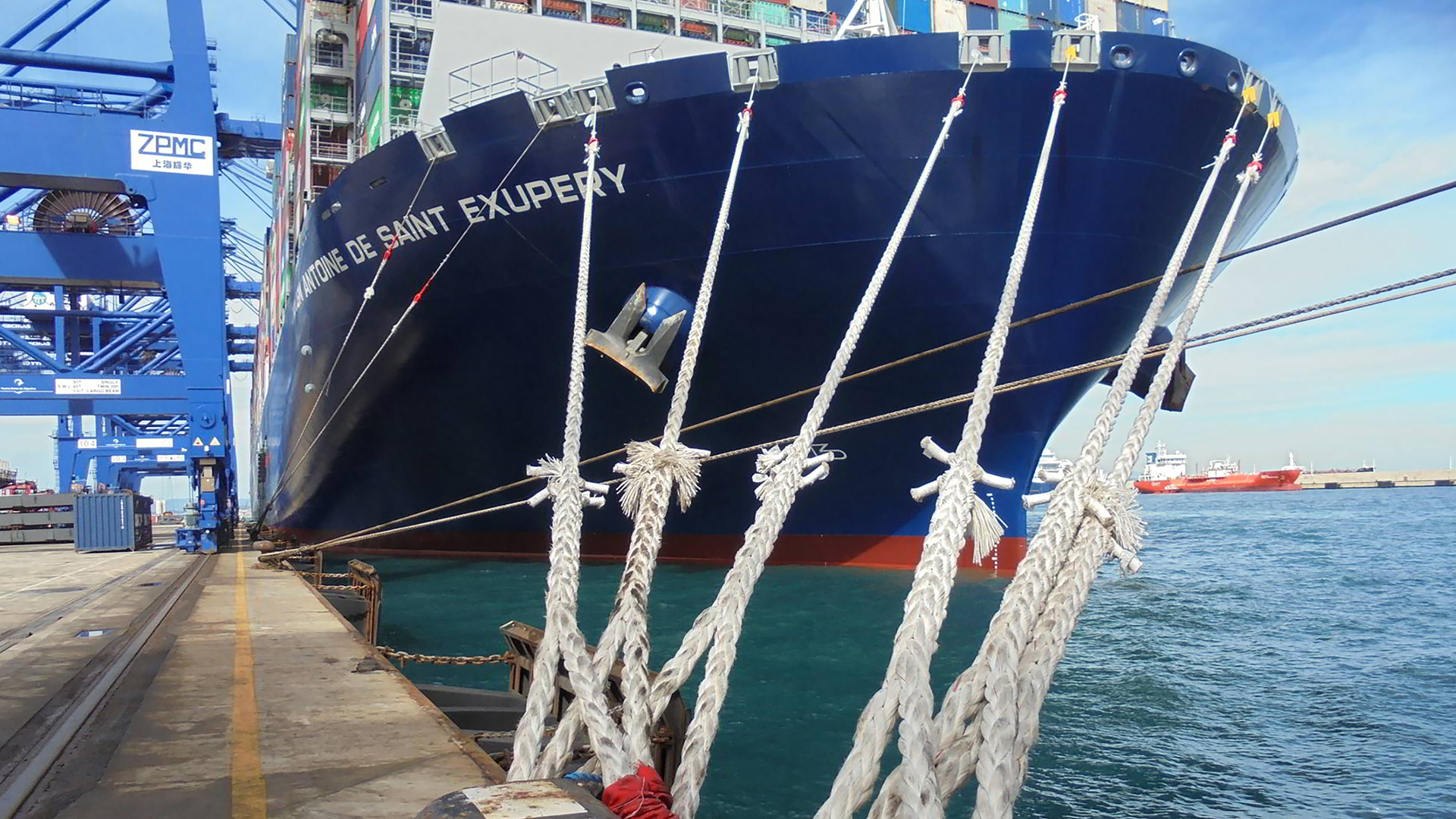CMA CGM (Germany) GmbH
CMA CGM is a family owned and operated company founded by Jacques Saadé. Today, Rodolphe Saadé, Chairman & CEO, manages the CMA CGM Group with 110,000…

CMA CGM group has committed itself to environmental protection and the conservation of biological diversity. Since June 2022, the shipping line no longer has plastic waste on board its vessels. With this decision, CMA CGM wants to prevent this kind of waste being exported to destinations that are not capable of sorting, recycling or reclaiming it. In so doing, the group has resolved to grasp practical measures, where it has the operative opportunity to do so, aligning itself with the urgent demands of some non-governmental organisations – NGOs. Furthermore, CMA CGM is carrying out a range of local environmental protection initiatives aligned to the group’s commitment to be climate-neutral by 2050. As early as November 2017, CMA CGM took the decision to build a fleet of natural gas powered units, in order to reduce the group’s emissions. LNG is currently the most advanced available and effective technology for conserving air quality and making a worthwhile first step towards decarbonisation. The group currently has a fleet of 27 ships with dual-fuel LNG propulsion that should grow to 44 by 2024.
CMA CGM is also supporting efforts towards the development of production and distribution of future-oriented renewable energies. The alternative energies of bio-methane, synthetic methane and e-methane are already compatible with the LNG operated fleet and will help to almost eradicate greenhouse gas emissions. Parallel to this, the group is investing in green fuels of the second generation that are produced from used cooking oils – UCOME. This should reduce greenhouse gas emissions between reclamation and combustion by 85 percent. In 2019, CMA CGM announced that its ships would no longer sail on the Northern Sea routes, i.e. along the coast of Siberia, in order to protect the unique, but fragile Arctic eco-system.
Moreover the shipping line has started the ‘My Daily Impact’ programme, an internal commitment platform advising staff how they can reduce their CO2 footprint through their daily actions. For example, there is advice on reducing travel with motorized vehicles, via deleting emails and unused data from servers to reducing digital environmental pollution and reducing use of plastic. During a pre-launch in November for 400 pilot users in 52 different countries, within four months ‘My Daily Impact’ already achieved a saving of in excess of 14 tons of CO2 equivalent, or put more simply, the equivalent of 70 round-trips by car between Marseille and Barcelona.
To mark Earth Day on 22 April, worldwide several hundred group staff took part in initiatives to collect waste from beaches in Vietnam and to reforestation of specific areas in South Korea. Moreover in 2021, CMA CGM started a global reforestation plan, planting 110,000 trees – one for each staff member in the group – in 12 countries. The Reef Recovery Project is a comprehensive regeneration program for coral reefs that the shipping line started in 2020 at the Great Barrier Reef off Australia’s coastline. This year, the group has announced a partnership with Woods Hole Oceanographic Institution to assist protecting whales and dolphins off the coast of the United States